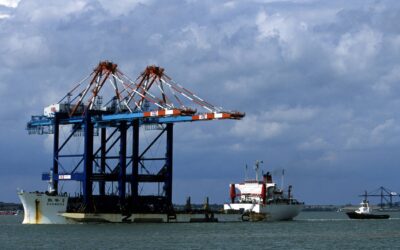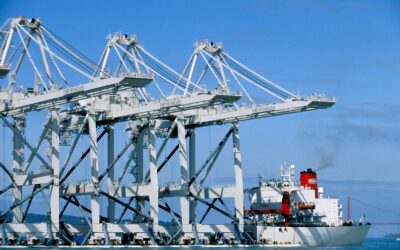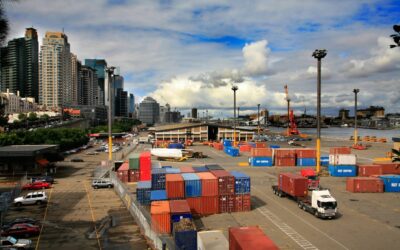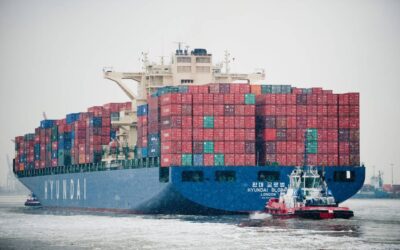What Makes Alibaba Products So Cheap?

Alibaba has become synonymous with affordable products for consumers worldwide. But what exactly makes Alibaba products so cheap? Let’s delve into the factors that contribute to the low prices offered on this e-commerce platform.
Introduction
Since its inception in 1999 by the visionary entrepreneur Jack Ma, Alibaba has undergone a remarkable transformation, blossoming into a global powerhouse in the realm of e-commerce. Serving as a pivotal hub for trade, Alibaba seamlessly bridges the gap between buyers and sellers on a worldwide scale. While the platform boasts an array of appealing features, one of its most compelling aspects is undeniably the accessibility and affordability of its vast array of products. But delving beyond the surface allure of enticing price tags unveils a fascinating ecosystem underpinning Alibaba’s economic prowess.

Direct Sourcing
Direct sourcing is a cornerstone of Alibaba’s business model, enabling buyers to establish direct connections with manufacturers and wholesalers based in China. By bypassing intermediaries like distributors and retailers, Alibaba streamlines the procurement process, fostering direct communication and transactions between buyers and suppliers. This direct sourcing approach not only enhances efficiency but also leads to substantial cost savings for both parties involved. Eliminating the need for middlemen eliminates additional markup and overhead costs typically associated with traditional supply chains. As a result, Alibaba can offer products at competitive prices while providing suppliers with a direct avenue to reach a global customer base. This streamlined process benefits buyers by providing access to a wide range of products at affordable prices, while suppliers can maximize their profitability by directly catering to consumer demand.
Manufacturing Costs
China has gained renown as the “world’s factory” owing to its significantly lower labor and manufacturing costs in comparison to numerous other countries globally. This advantageous cost structure directly translates into substantial cost savings for suppliers affiliated with Alibaba. As a result, these suppliers can extend competitive pricing to consumers without compromising on their profit margins, thereby making Alibaba products highly appealing in terms of affordability and value.
Economies of Scale
Alibaba’s expansive platform serves as a hub for large-scale production and sales, allowing suppliers to capitalize on economies of scale. As suppliers ramp up production volumes to meet the demands of this vast marketplace, they experience significant cost advantages. These advantages stem from the spreading out of fixed costs, such as machinery and equipment, over a larger number of units produced.
With economies of scale at play, the average cost per unit decreases as production volumes increase. This reduction in per-unit costs enables suppliers to operate more efficiently and competitively. Consequently, they can offer their products at more attractive price points to buyers, passing on the cost savings achieved through economies of scale. In essence, the larger the production volume, the lower the average cost per unit, resulting in greater affordability for buyers browsing through Alibaba’s extensive catalogue of offerings.
Competition
In the bustling marketplace of Alibaba, competition serves as a powerful force shaping the affordability of its products. The platform teems with a multitude of sellers offering similar goods, creating a dynamic environment where competition thrives. This competitive landscape compels suppliers to constantly reassess and adjust their pricing strategies in a bid to stand out and capture the attention of discerning buyers. As each seller vies for the patronage of customers, the inevitable result is a downward pressure on prices, as suppliers seek to outdo one another with attractive offers and deals. This relentless drive to attract and retain customers not only fosters innovation and improvement but also yields tangible benefits for buyers in the form of more competitive pricing and enhanced value propositions. Thus, the competitive ethos inherent in Alibaba’s marketplace serves as a catalyst for driving prices down, ultimately enhancing the purchasing power and satisfaction of consumers.
Minimal Overhead Costs
A significant advantage for many Alibaba suppliers lies in their predominantly online presence, which obviates the necessity for brick-and-mortar storefronts, thereby slashing overhead costs typically linked with conventional retail setups. This streamlined business approach not only enables suppliers to trim expenses but also empowers them to extend cost savings to customers through competitively priced products.
Access to Raw Materials
Access to raw materials is a critical advantage for Alibaba suppliers due to their geographical proximity to manufacturing hubs in China. This proximity streamlines the procurement process, allowing suppliers to acquire raw materials more efficiently and at competitive prices. By being situated in close proximity to suppliers and manufacturers, Alibaba suppliers can negotiate favorable deals and secure a steady supply of materials essential for production. This streamlined access not only reduces procurement costs but also minimizes logistical challenges associated with sourcing raw materials from distant locations. Consequently, the ability to obtain raw materials easily and cost-effectively contributes significantly to lowering production costs for Alibaba suppliers. As a result, this advantage plays a pivotal role in enhancing the affordability of Alibaba products for consumers worldwide.
Efficient Logistics
Alibaba has made significant investments in enhancing its logistical capabilities, aiming to create streamlined shipping processes. Through meticulous planning and optimization of transportation routes, the platform ensures that products are delivered swiftly and efficiently. By minimizing handling times and employing advanced logistics technologies, Alibaba effectively lowers transportation costs. These cost savings are then passed on to consumers through more competitive pricing for the products available on the platform.
Lower Regulatory Costs
Lower regulatory costs refer to the reduced expenses associated with complying with government regulations and standards in China, especially concerning labor and environmental regulations. In comparison to other countries, China often imposes less stringent regulations, resulting in lower compliance costs for businesses operating within its borders. This decreased regulatory burden directly translates into cost savings for suppliers on Alibaba’s platform. With fewer expenses incurred in meeting regulatory requirements, Alibaba suppliers can offer their products at more competitive prices to buyers, ultimately benefiting consumers with cost-effective options.
Quality and Authenticity
Ensuring the quality and authenticity of products purchased from Alibaba is of utmost importance, despite the attractive prices they offer. To safeguard against the potential pitfalls of acquiring substandard or counterfeit items, buyers are advised to adopt a meticulous approach. This involves conducting comprehensive research on the products of interest, carefully scrutinizing reviews from other buyers to gauge their experiences and satisfaction levels. Additionally, verifying the credentials and reputation of the suppliers is essential, as it helps in establishing trust and reliability. By diligently following these steps, buyers can minimize the risk of encountering inferior or fake products, ensuring a satisfactory purchasing experience on the Alibaba platform.
Customer Trust
Expanding on the notion of customer trust within Alibaba’s ecosystem involves understanding the pivotal role it plays in fostering successful transactions. Trust forms the cornerstone of the buyer-seller relationship, ensuring smooth interactions and facilitating long-term business growth. Alibaba recognizes this fundamental aspect and implements a multifaceted approach to instill confidence in its users.
The platform prioritizes transparency and accountability through robust buyer protection programs, which serve as safeguards against potential risks or disputes. These programs offer recourse for buyers in the event of issues such as damaged goods, late deliveries, or discrepancies between product descriptions and actual items received. By providing avenues for resolution, Alibaba demonstrates its commitment to ensuring fair and satisfactory outcomes for all parties involved.
Moreover, Alibaba employs stringent seller verification processes aimed at verifying the legitimacy and credibility of merchants operating on its platform. Through comprehensive vetting procedures, including identity verification and business documentation checks, Alibaba strives to weed out fraudulent or untrustworthy sellers. This proactive approach not only enhances the reliability of the marketplace but also instills confidence in buyers, knowing they are engaging with reputable and trustworthy sellers.
Additionally, Alibaba fosters a culture of transparency and accountability by encouraging open communication between buyers and sellers. The platform facilitates direct communication channels, allowing users to engage in discussions, clarify queries, and address concerns before making purchasing decisions. By promoting transparent interactions, Alibaba cultivates a sense of trust and transparency within its community, further bolstering confidence in the integrity of transactions.
In essence, Alibaba’s commitment to building customer trust extends beyond mere rhetoric, as evidenced by its proactive measures and initiatives aimed at ensuring the reliability, transparency, and integrity of transactions. By prioritizing the interests of both buyers and sellers, Alibaba fosters a conducive environment where trust thrives, laying the foundation for sustainable growth and mutual prosperity within its vibrant marketplace.
Global Supply Chain
Alibaba serves as a pivotal player in the intricate web of the global supply chain, acting as a bridge between manufacturers and wholesalers in China and consumers spanning the globe. Through its expansive platform, Alibaba seamlessly facilitates the exchange of goods, fostering a seamless flow of trade across borders. By forging connections between diverse markets and stakeholders, Alibaba optimizes the sourcing and distribution process, streamlining the journey of products from production facilities to the hands of eager buyers. This efficient orchestration of supply chain dynamics not only enhances accessibility but also drives down costs, ultimately translating into the affordability that Alibaba products are renowned for.
Consumer Benefits
Alibaba’s platform not only offers affordability but also provides consumers with unparalleled access to an extensive array of products at prices that are highly competitive in the market. Whether buyers are seeking to make bulk purchases for their businesses or simply looking for individual items, Alibaba’s diverse marketplace caters to their needs with affordability and unmatched convenience. From electronics and clothing to home goods and industrial supplies, Alibaba empowers consumers to find what they need quickly and easily, all while enjoying the cost savings and convenience that the platform offers.
Challenges and Risks
Longer Shipping Times
One of the primary challenges buyers may encounter when purchasing from Alibaba is longer shipping times. Due to the international nature of transactions and varying distances between suppliers and buyers, shipping durations can be extended. Factors such as customs clearance procedures and transportation delays may also contribute to longer delivery times. Buyers should consider these factors, especially when time-sensitive purchases are involved, and plan accordingly.

Language Barriers
Navigating language barriers can pose a challenge for buyers communicating with Alibaba sellers. While many sellers on the platform may have basic English proficiency, communication gaps can still occur, leading to misunderstandings or difficulties in conveying specific requirements or concerns. Buyers may need to employ translation tools or seek assistance from Alibaba’s customer support to facilitate effective communication with sellers.
Conclusion
Alibaba’s ability to offer products at competitive prices is underpinned by a combination of factors, including direct sourcing, low manufacturing costs, economies of scale, and efficient logistics. While the platform provides numerous benefits for consumers, it’s essential to exercise caution and diligence to ensure a satisfactory shopping experience.
Recent Posts
- Budget-Friendly Imports: Strategies for Cost Control When Importing Goods From China
- Bridging Cultures: Navigating Cultural Aspects in China Imports
- Guide to working with a sourcing agent in China for startups
- How China Sourcing Agents Can Transform Your Business
- Exploring the Benefits of Collaborating with a China Sourcing Agent







Recent Comments